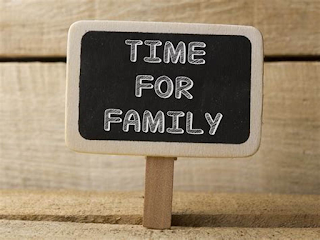Lesson 1: Congratulations, you’re having a baby! Now What?
Creating and Maintaining a Strong Marriage through the Foundation
of Friendship.
To introduce our first lesson, we wanted to share a video that highlights
what strong marriages are built on.
What did you hear in that video that resonated with
you? Michelle Obama emphasized how much
you need to like and respect the person you are with. Viola Davis kept it real in saying that
marriage starts when you look over at your spouse and think, “I want to kill
this person”, and choosing to love them anyway.
Rachael’s personal favorite was Will and Jada Smith, who stressed the
importance of having shared meaning.
Beyoncé wrapped it up for us in saying, “We built the foundation of our
friendship first.”
The Four Agreements is a wonderful resource in
maintaining a solid foundation of friendship in a marriage. Yes, it is a
very holistic approach (this book is well loved by yogis the world over) but
the principles are sound and proven in any relationship. Agreements two
and three are 2. Don’t take anything personally, and 3. Don’t make assumptions.
Knowing your partner and having a constantly updated friendship foundation will
help in both not taking a your partner’s bad mood personally and also avoiding assumptions
as to why they are having a bad day in the first place.
We have a
little activity with some questions that you could ask your spouse to help
build a new layer of your friendship that is specific to becoming a parent for
the first time. Don’t feel like you need to ask all these questions of
one another all at once. Some of them
may need further discussion, and that is a-okay! Set up a date night and go to your favorite
restaurant, or order in from your favorite Chinese place, or cook dinner together
while you go through these questions. The important thing is that you are
both taking the time to get to know each other in a different light before the
baby arrives. Some of these questions
you probably already know the answer to, but some you may not, and some answers
may change because now you are answering them through the lens of a soon-to-be
parent. Keep that in mind!
- What are most excited about with the new baby?
- What is your biggest fear about becoming a parent?
- What are your life dreams?
- Overall, what was your childhood like? Is there anything that you would want to change about it or do differently?
- What are you most excited about lately (besides the baby)?
- How often were you around babies growing up?
- What are some important things coming up in your life besides the baby?
- What do you like to do in your free time?
- What is your favorite way to spend the day together?
- What is your favorite way to celebrate a birthday? How did you celebrate birthdays as a child?
- What do you like to do to relax?
- What are your favorite restaurants?
These may seem like silly questions, and I hope
you came up with lots more on your own! The goal of this activity is to
lay a foundation of things you already know about your partner so when that
stressful day comes, you will already have a good idea of what it is about and
know how to offer comfort and support!
Homework to
prepare for next week:
This week take moment each day to recognize how you and your
partner respond to each other emotionally. Feel free to keep a journal
throughout these lessons and record your thoughts and feelings.
Looking Ahead - Lesson
Outline
Lesson 2 – Maintaining a Strong Marriage through Emotional Bank
Accounts
Lesson 3 – Supporting One Another through Self Care and Stress
Relief
Lesson 4 – The Importance of New Parental Roles
Lesson 5 – Family Goals and Values
Lesson 6- Creating new Routines and Traditions
Evaluation Form
References
Belsky J., & Rovine, M. (1990). Patterns of Marital Change
across the Transition to
Parenthood: Pregnancy to Three Years Postpartum.
Journal of Marriage and Family, (1), 5.
https://doi-org.byui.idm.oclc.org/10.2307/352833
Gottman JM, Shapiro AF, & Parthemer J. (2004). Bringing baby
home: a workshop for new and
expectant parents. International Journal of
Childbirth Education, 19(3), 28–30. Retrieved from https://byui.idm.oclc.org/login?url=https://search-ebscohost-com.byui.idm.oclc.org/login.aspx?direct=true&db=cin20&AN=106600143&site=eds-live
Miguel, D.R., (1997) The four agreements: A
practical guide for personal freedom. San Rafael, California: Amber-Allen
Publishing.
Polomeno, V. (2007). Marriage in the Transition to Parenthood: How
Can Perinatal Education
Help? Or
Can It? International Journal of Childbirth Education, 22(2),
21–29. Retrieved from https://byui.idm.oclc.org/login?url=https://search-ebscohost-com.byui.idm.oclc.org/login.aspx?direct=true&db=awh&AN=25608601&site=eds-live

Comments
Post a Comment